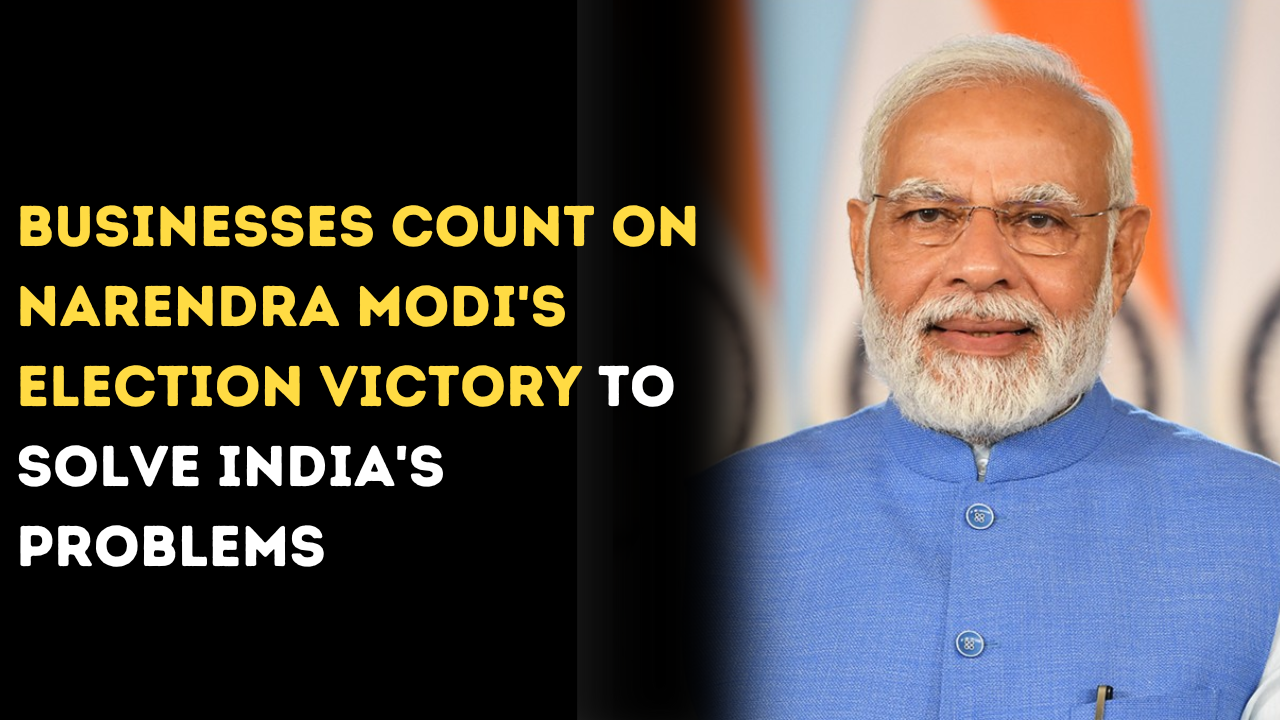Businesses Count on Narendra Modi's Election Victory to Solve India's Problems
16 May 2024 3 mins Personal Finance

India's corporate elite has praised Narendra Modi's pro-business posture, and they expect him to dramatically reduce investment restrictions if he wins another term as Prime Minister. Under Modi's leadership, India has had spectacular economic growth, rising in the World Bank's ease of doing business rankings and lowering corporate tax rates. His vision plan, Viksit Bharat (Developed India), seeks to boost India's economy to a developed level by 2047, coinciding with the country's centenary of independence.
Despite economic development, businesses confront challenges such as complex tax regulations, property acquisition concerns, and strict labor laws. Complex tax procedures, regulatory uncertainties, and reimbursement delays continue to be significant hurdles for businesses operating in India. Modi's micromanagement has occasionally led to frequent regulatory revisions, complicating business decisions. Barriers to overseas investment in a number of industries erode investor confidence, necessitating a relaxation of restrictions to boost motivation.
Modi's next term is likely to bring about tax reforms, manufacturing incentives, and increased integration with global supply chains. Production-related incentives to expand manufacturing are among the expected reforms, as are initiatives to improve integration with global supply chains. Modi's ability to influence constitutional reforms will be essential, as changes require a two-thirds majority vote in parliament.
Despite its challenges, India's rising economy continues to attract investors, aided by government stability and market opportunity. Poonam Gupta cites India's advantages, which include political stability and commitment at both the national and state levels, as contributing to economic success.
Furthermore, the government think tank NITI Aayog has been tasked with creating a "vision plan" to expand India's GDP to a staggering $30 trillion by 2047, a considerable rise from the IMF's current prediction of $4.1 trillion. This ambitious approach reflects India's near-term goals of high economic growth and global leadership.
Meanwhile, international companies face retrospective fines under India's regulatory landscape, with the gaming industry incurring a large 28% penalty last year. India's labor laws, which are criticized for their complexity with over 400 regulations, present obstacles for businesses in the recruitment and dismissal processes. Despite being considered a manufacturing alternative to China, greenfield investment in India faces constraints such as land acquisition and regulatory clearances throughout the country's 28 states.
According to Richard Rossow, Chair of US-India Policy Studies, efforts to liberalize foreign investment restrictions have slowed, indicating the need to address impediments in roughly 40 industries. Rossow underlines the importance of increasing investor confidence through deeper integration into global supply chains.
Looking ahead, Ashok Malik forecasts a strong emphasis on manufacturing, along with the implementation of production-linked incentives to support industrial growth. Efforts to combat issues such as Chinese dumping and component duty reductions are intended to improve global value chains and boost India's international competitiveness.
To summarize, India's efforts to attract investment, reduce regulations, and promote long-term economic growth demonstrate its dedication to economic development and global leadership. Addressing regulatory hurdles and regaining investor trust remain critical goals for the country as it charts its road toward prosperity.
Reference - https://www.ft.com/content/0b3e794f-4f14-4cb9-91e1-3df1ed16b49b
Personal Loans with clear terms and transparent fees.
Credit Cards with low interest rates and no surprise charges.
Find the Right Credit Card for You